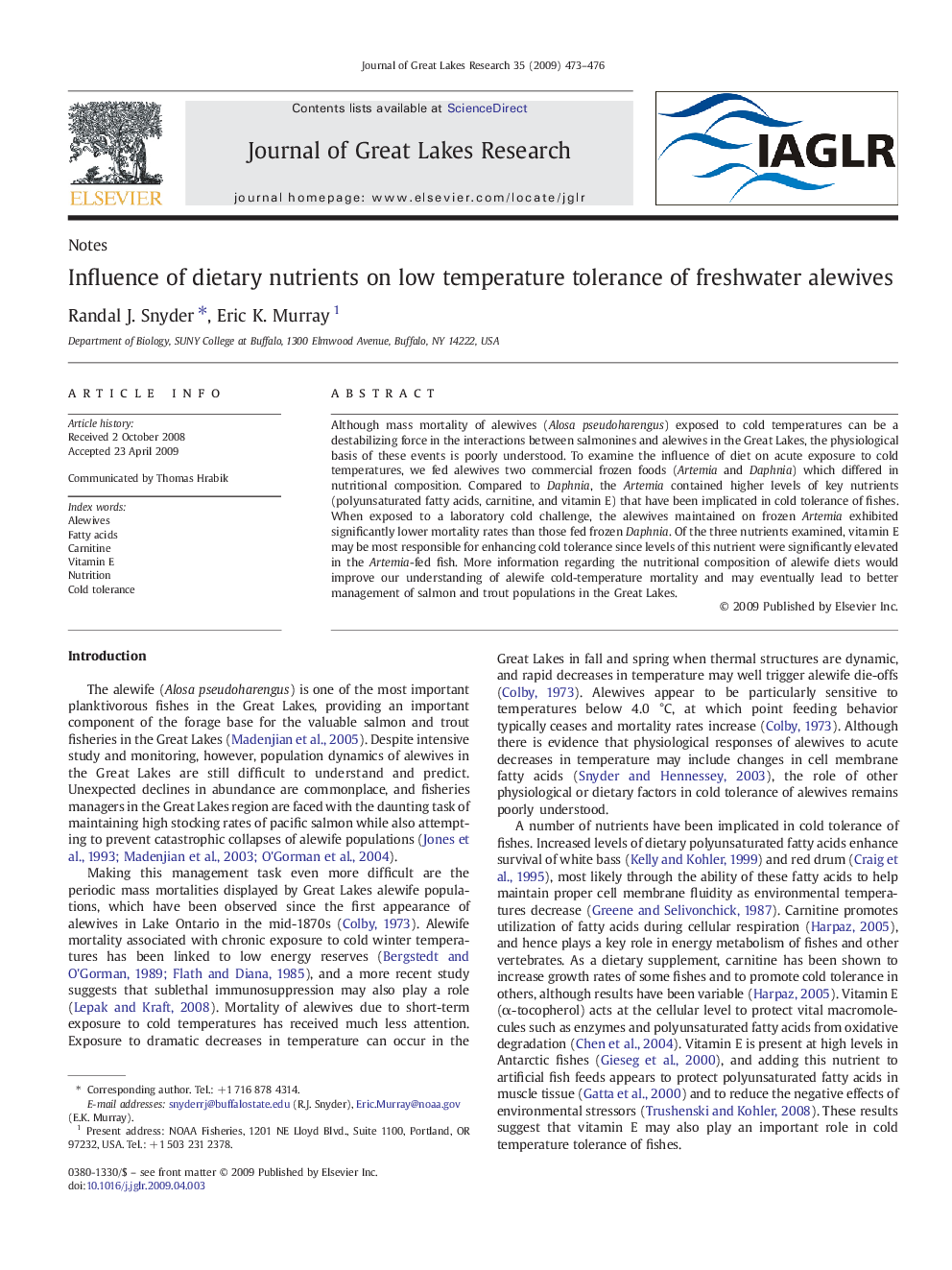| Article ID | Journal | Published Year | Pages | File Type |
|---|---|---|---|---|
| 4399299 | Journal of Great Lakes Research | 2009 | 4 Pages |
Although mass mortality of alewives (Alosa pseudoharengus) exposed to cold temperatures can be a destabilizing force in the interactions between salmonines and alewives in the Great Lakes, the physiological basis of these events is poorly understood. To examine the influence of diet on acute exposure to cold temperatures, we fed alewives two commercial frozen foods (Artemia and Daphnia) which differed in nutritional composition. Compared to Daphnia, the Artemia contained higher levels of key nutrients (polyunsaturated fatty acids, carnitine, and vitamin E) that have been implicated in cold tolerance of fishes. When exposed to a laboratory cold challenge, the alewives maintained on frozen Artemia exhibited significantly lower mortality rates than those fed frozen Daphnia. Of the three nutrients examined, vitamin E may be most responsible for enhancing cold tolerance since levels of this nutrient were significantly elevated in the Artemia-fed fish. More information regarding the nutritional composition of alewife diets would improve our understanding of alewife cold-temperature mortality and may eventually lead to better management of salmon and trout populations in the Great Lakes.
